Dehydration Fluid Calculator
Calculate Your Rehydration Needs
Enter your weight, severity, and solution type to calculate your fluid needs.
A sudden bout of stomach cramps, urgent trips to the bathroom, and a fear that the next sip of water might just make you feel worse-many of us have faced that moment. When acute diarrhea hits, the body can lose a staggering amount of fluid and electrolytes in just a few hours, and dehydration can set in faster than you think. This guide breaks down why staying hydrated matters, how to measure fluid loss, and the most effective ways to replenish what’s gone.
Key Takeaways
- Acute diarrhea can cause up to 1L of fluid loss per hour in severe cases.
- Oral Rehydration Solution (ORS) restores electrolytes more efficiently than plain water.
- Homemade rehydration drinks can be just as effective when prepared correctly.
- Monitoring urine output and skin turgor helps you catch dehydration early.
- Seek medical care if you can’t keep fluids down, have blood in stool, or show signs of severe dehydration.
Understanding Acute Diarrhea and Dehydration
When you hear the term Acute Diarrhea is a sudden increase in stool frequency and liquidity that typically lasts less than two weeks. It’s often triggered by viral infections (like norovirus), bacterial culprits (such as Escherichia coli), or parasites. The gut walls become hyper‑active, pulling water into the intestinal lumen faster than it can be reabsorbed.
Meanwhile, Dehydration is the net loss of body water and essential electrolytes, mainly sodium, potassium, and chloride. Even a 2‑3% drop in total body water can impair kidney function, lower blood pressure, and cause dizziness or confusion. In children and the elderly, the threshold is even lower, making rapid rehydration a priority.
Why Hydration Matters: The Physiology Behind Fluid Loss
Every bowel movement expels not just waste but also electrolytes. A typical watery stool contains roughly 80mEq/L of sodium and 20mEq/L of potassium. If you’re losing 10L of stool over a day-a severe scenario-you're shedding about 800mEq of sodium, a level that can cause hyponatremia.
Beyond electrolytes, fluid loss reduces blood volume, which strains the cardiovascular system. Your heart works harder to pump a thinner blood, leading to tachycardia and, in extreme cases, shock. Keeping fluid intake balanced with loss is therefore a lifesaver, literally.
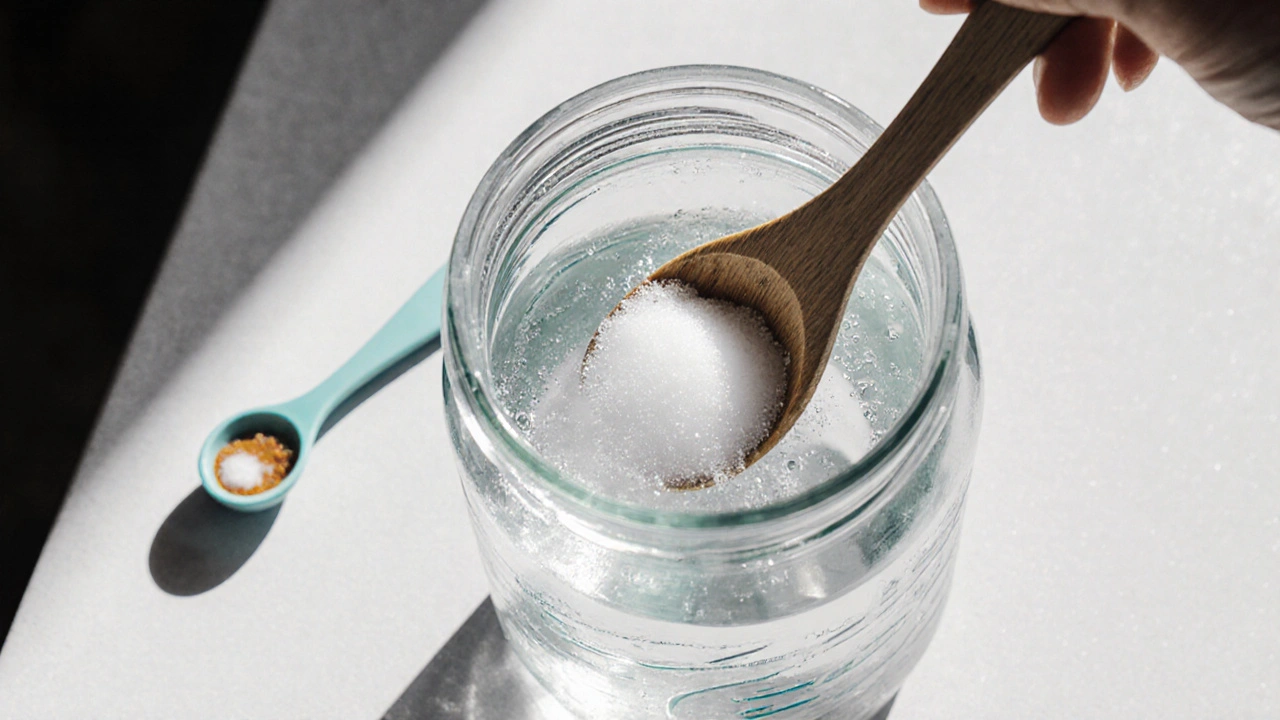
Assessing Fluid Loss: Simple Signs You Can Track at Home
Before you decide which rehydration method to use, gauge how dehydrated you are. Here are three quick checks:
- Urine output: Dark amber urine means you need more fluids; a pale, frequent stream suggests adequate hydration.
- Skin turgor: Pinch the skin on the back of your hand; if it stays tented, you’re likely dehydrated.
- Thirst level: While thirst is a late indicator, a constant dry mouth is a red flag during an episode.
If you notice any of these signs worsening, it’s time to up your rehydration game.
Rehydration Strategies: From Homemade Solutions to Commercial Products
The gold standard for replacing lost fluids is a solution that mirrors the body’s electrolyte composition. The World Health Organization (WHO) provides a simple recipe that has saved millions of lives in low‑resource settings.
| Fluid | Sodium (mmol/L) | Potassium (mmol/L) | Glucose (g/L) | Best For |
|---|---|---|---|---|
| Plain Water | 0 | 0 | 0 | Mild cases, general thirst |
| WHO Oral Rehydration Solution (ORS) | 75 | 20 | 75 | Severe diarrhea, children |
| Pedialyte (commercial ORS) | 45 | 20 | 70 | Kids and adults, taste‑preferred |
| Sports Drink (e.g., Gatorade) | 30 | 5 | 60 | Light activity, mild fluid loss |
| Coconut Water | 25 | 12 | 0 | Natural option, moderate loss |
1. WHO Oral Rehydration Solution (ORS)
Mix 1liter of clean water with 6level teaspoons of sugar and half a level teaspoon of salt. This yields a solution with approximately 75mmol/L sodium and 20mmol/L potassium-closely matching what the intestines lose during diarrhea.
Why it works: The glucose in the mix triggers sodium‑glucose co‑transport in the gut, pulling water into the bloodstream efficiently. Studies by the WHO in the 1990s showed ORS reduces mortality from diarrheal diseases by up to 93%.
2. Commercial ORS Products
Brands like Pedialyte and Rehydrite pre‑measure electrolytes and come in kid‑friendly flavors. They’re convenient when you’re short on time, though they tend to be pricier than homemade mixes.
3. Homemade Electrolyte Drink
If you can’t get a commercial product, a quick kitchen fix works:
- 1L of filtered water
- ½ teaspoon of salt (≈ 2.5g)
- ½ teaspoon of baking soda (sodium bicarbonate)
- 2 teaspoons of honey or sugar
- Optional: a pinch of potassium chloride (available as “salt substitute”)
Stir until dissolved. The bicarbonate helps neutralize excess stomach acid, which is often elevated during gastroenteritis.
4. Sports Drinks and Coconut Water
While easier to sip, they lack sufficient sodium for severe cases. Use them only when fluid loss is mild or as a supplemental sip alongside ORS.
5. Zinc Supplementation
Evidence from the International Centre for Diarrhoeal Disease Research, Bangladesh, shows that a 10‑mg zinc supplement for 10‑14days reduces the duration of diarrhea by about 25%. Include zinc tablets if the episode persists beyond 48hours.
Home Care Tips to Reduce Fluid Loss
- Eat bland, low‑fiber foods like bananas, rice, applesauce, and toast (the BRAT diet) to limit stool volume.
- Avoid caffeine, alcohol, and high‑sugar sodas; they increase urinary output.
- Take small sips every 5‑10minutes rather than large gulps, which can trigger vomiting.
- Rest in a cool, shaded environment; fever raises metabolic water loss.
These steps, combined with proper rehydration, usually curb the episode within a couple of days.
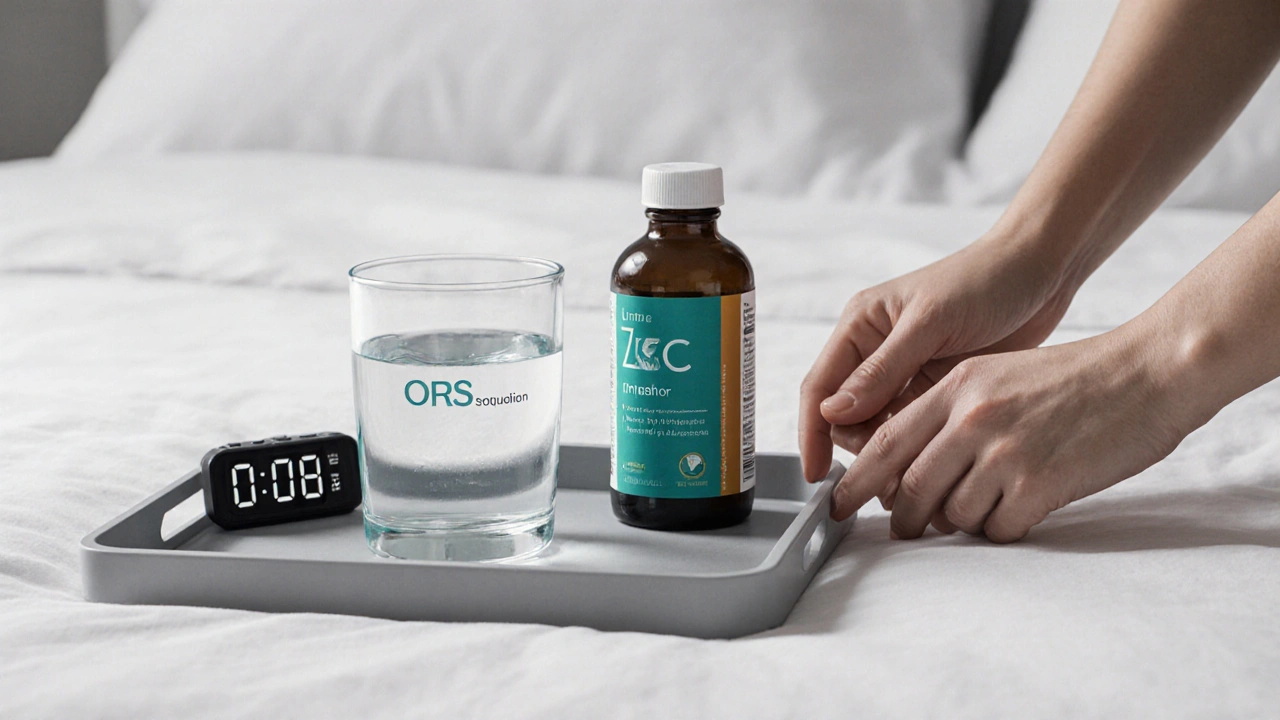
When to Seek Professional Care
Most cases resolve with home treatment, but watch for these red flags:
- Inability to keep any fluids down for more than 6hours.
- Blood or mucus in the stool.
- Severe abdominal pain.
- Signs of severe dehydration: rapid heartbeat, low blood pressure, dizziness, or confusion.
- Persistent vomiting, especially in children under 2years.
Prompt medical attention can prevent complications such as acute kidney injury or electrolyte imbalances that require intravenous therapy.
Quick Rehydration Checklist
- Prepare ORS solution (1L water + 6tsp sugar + ½tsp salt).
- Offer 250mL every 15minutes to children, 500mL to adults.
- Monitor urine color - aim for light straw.
- Track total intake: aim for at least 1L per hour for severe cases.
- Add a zinc supplement if diarrhea lasts more than 48hours.
- Contact a health professional if red‑flag symptoms appear.
Frequently Asked Questions
Can I use regular table salt for ORS?
Yes, plain iodized table salt works, but make sure you measure accurately. Too much salt can worsen dehydration, while too little won’t replace lost sodium.
Is coffee or tea a good rehydration fluid?
No. Caffeine is a diuretic and can increase fluid loss. Stick to water, ORS, or low‑caffeine herbal teas without added sugar.
How much ORS should an adult drink per day?
For moderate to severe diarrhea, aim for 2-3L of ORS spread across the day, adjusting based on thirst, urine output, and stool frequency.
Can I give a child sports drink instead of ORS?
Sports drinks lack enough sodium for severe diarrhea. They’re okay for mild cases, but for anything beyond a light upset, use a proper ORS formulation.
What role does zinc play in recovery?
Zinc helps the gut lining repair and reduces the duration of diarrheal episodes. A 10‑mg daily supplement for 10-14days is recommended for children and adults.
Staying on top of fluid loss during an episode of acute diarrhea can be the difference between a quick recovery and a dangerous health scare. By measuring your intake, using the right rehydration solution, and knowing when to call a professional, you’ll keep dehydration at bay and get back to feeling normal in no time.

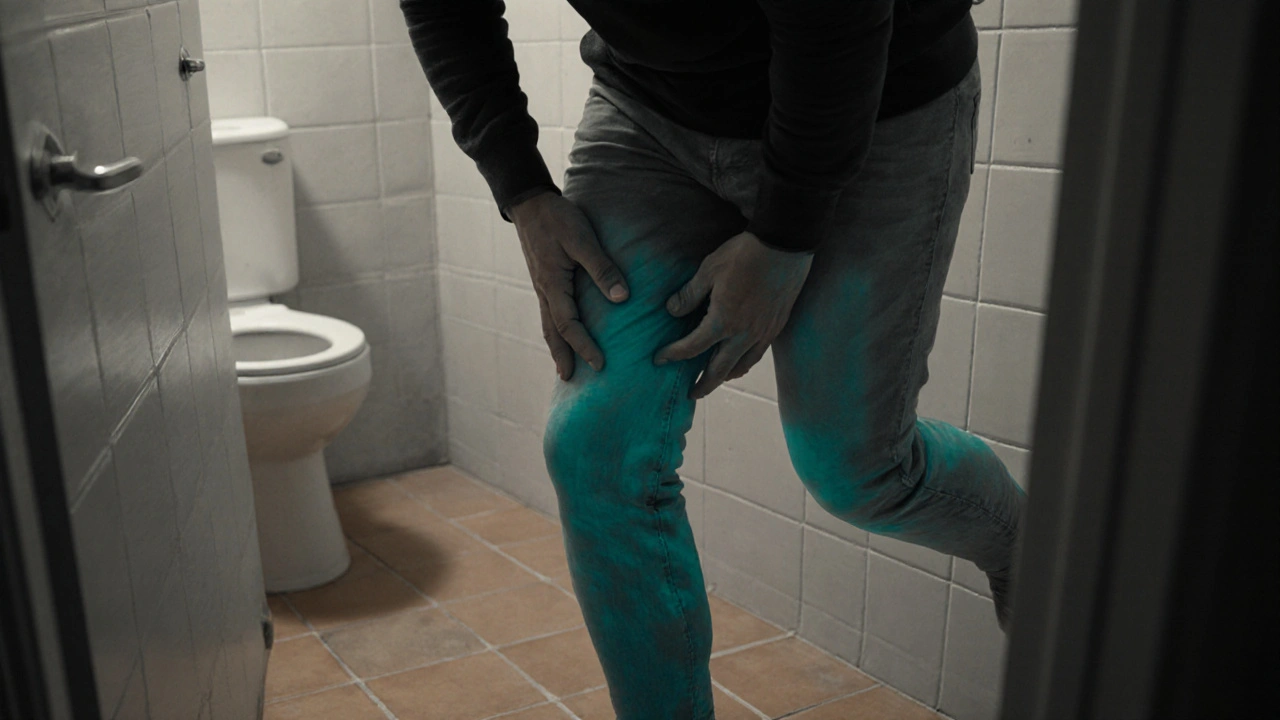
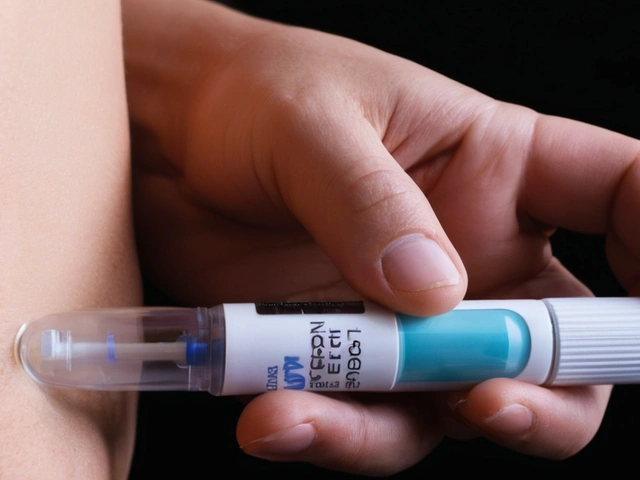
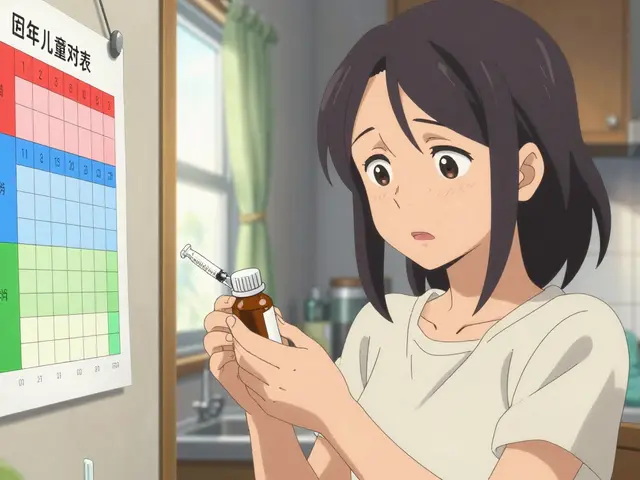

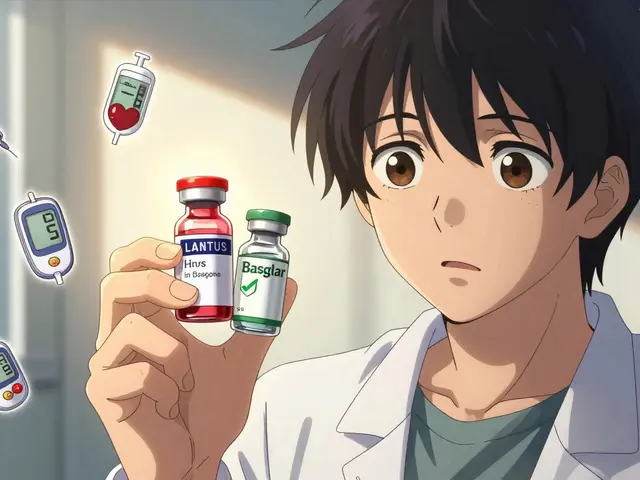
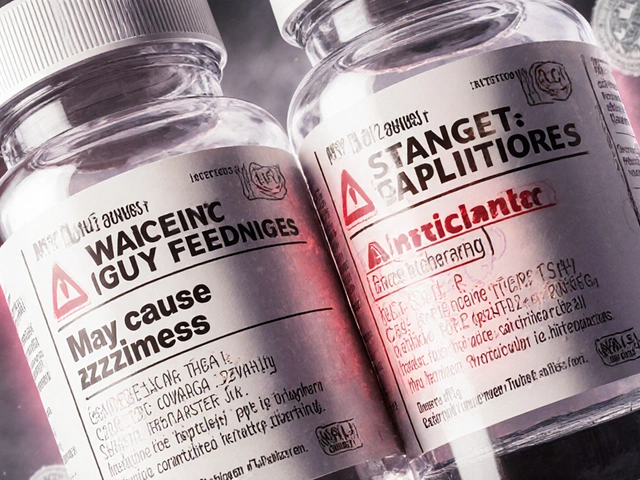
Kevin Adams
October 16, 2025 AT 19:10